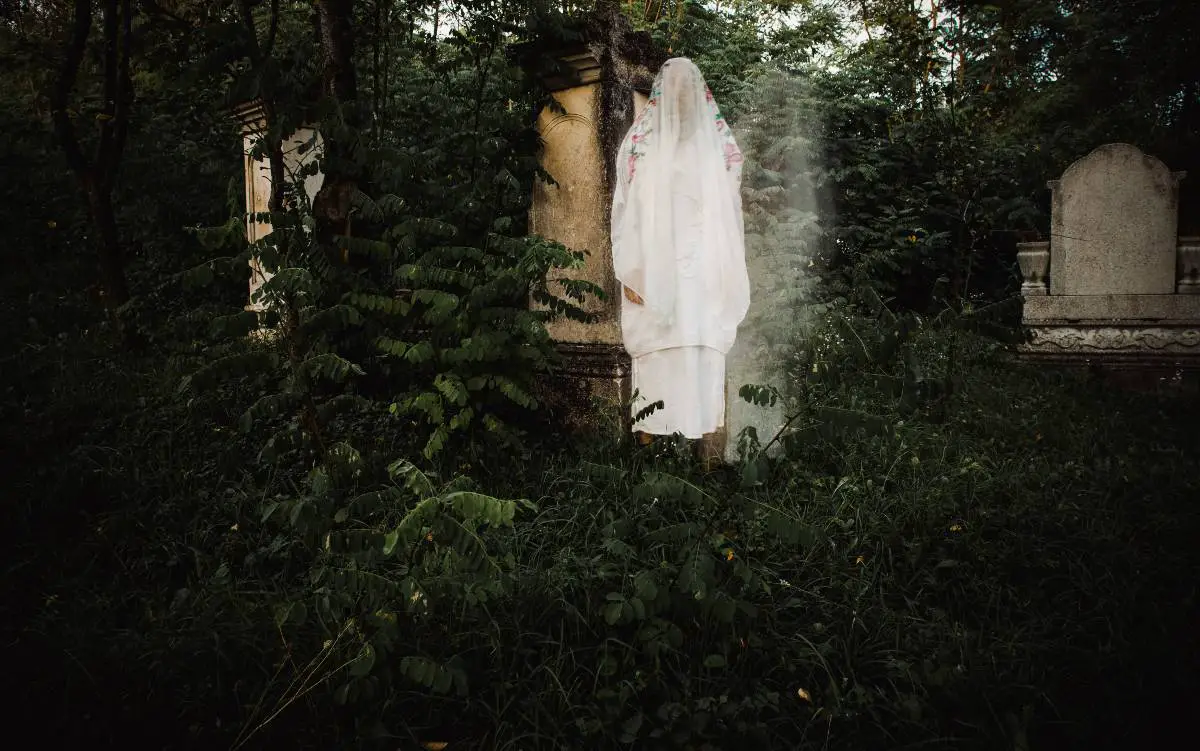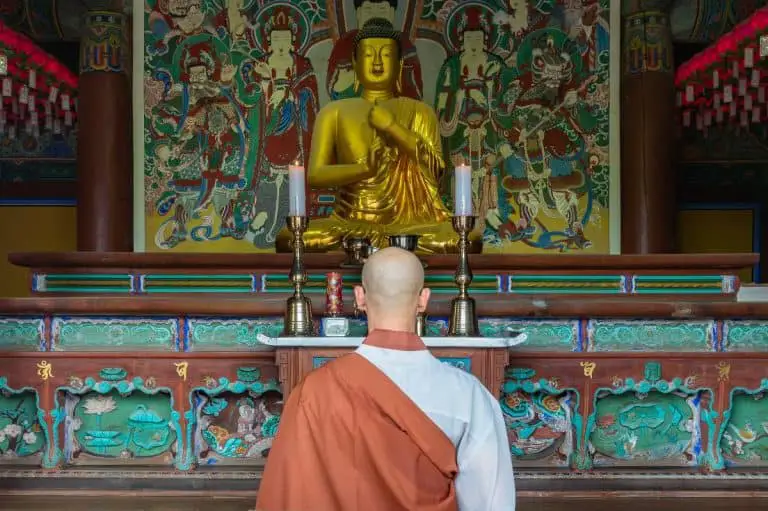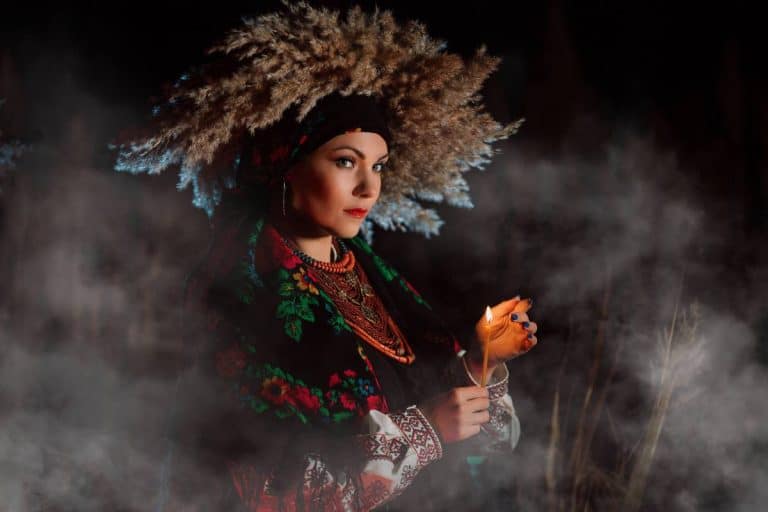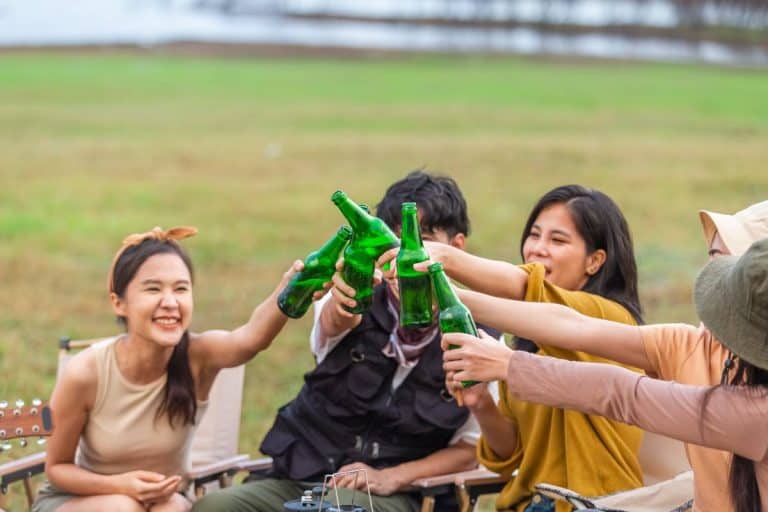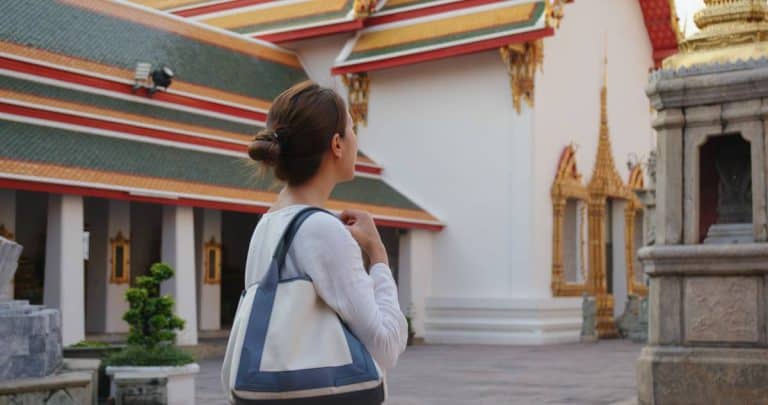Thailand’s Expat Ghost Encounters Stories
Moving to Thailand as an expat is often painted with vibrant strokes of bustling markets, serene temples, and the irresistible aroma of street food. You’ve likely heard about the friendly locals, the affordable cost of living, and the breathtaking landscapes. But beneath the surface of this tropical paradise lies another realm, one that whispers tales of spirits and unexplained phenomena. For those settling into their new Thai life, these stories of Thailand’s expat ghost encounters can be both intriguing and, at times, unsettling.
Key Takeaways
- Thai culture deeply intertwines animism and Buddhism, making spirits (“phi”) a significant part of their reality and daily life.
- Expats commonly report subtle unexplained occurrences like sounds, cold spots, or shadows, often attributed to spirits by locals.
- Respecting local beliefs about ghosts and spirits is crucial for expats navigating Thai culture and potential personal experiences.
A Culture Steeped in Spirits
Understanding ghost stories in Thailand requires acknowledging the deeply ingrained cultural beliefs surrounding spirits and the afterlife. Animism, the belief that spirits inhabit natural objects and the environment, has long been intertwined with Buddhist traditions. These beliefs shape daily life, from the small spirit houses found outside homes and businesses offering daily sustenance to appease local spirits, to the reverence shown to ancestors, which is an integral part of the international community’s understanding of Thai culture.
For many Thais, the spirit world is not a distant fantasy but an active and influential part of their reality. Ghosts, known as “phi” (ผี), are believed to be the spirits of the deceased who, for various reasons, have not moved on. These reasons can range from unfinished business or tragic deaths to a lack of proper funeral rites. Understanding this cultural backdrop is crucial for expats navigating discussions or even personal experiences with the supernatural.
Expat Experiences: Whispers in the Night
While you might not encounter a ghost on your first trip to the local 7-Eleven, stories of expats experiencing unexplained phenomena in Thailand are surprisingly common. These aren’t always dramatic poltergeist activity; often, they are subtle yet persistent occurrences that leave a lingering sense of unease.
Imagine waking up in your new apartment to the faint sound of someone walking around when you know you’re alone. Or perhaps a door creaking open despite there being no breeze. Some expats report seeing fleeting shadows or feeling a sudden drop in temperature in specific areas of their homes, which can occur during the night when spirits are said to be most active.
One expat, Sarah, who lives in Chiang Mai, shared her experience: “I initially dismissed it as the old building settling, but there was this one corner of my living room where I always felt a cold spot. My Thai friend visited and immediately pointed to it, saying, ‘Ah, there’s a spirit here.’ It wasn’t malicious, she said, just… there. It definitely made me think twice about late-night walks around the apartment.”
Another expat, Mark, recounted a story from his time living in a more rural area: “My neighbor told me about a spirit that guarded a large tree near my house. He warned me never to disturb it. One night, after a few too many Chang beers, I jokingly threw a pebble at the tree. The next morning, I woke up with a terrible headache and a strange sense of dread, which some might attribute to the presence of a pregnant nak nearby. Whether it was coincidence or not, I never did that again.”
These anecdotes highlight the range of experiences, from subtle sensory perceptions to more direct warnings or feelings of presence. It’s important to note that many expats approach these stories with a healthy dose of skepticism, often attributing them to cultural differences, overactive imaginations, or simply the unfamiliarity of a new environment. However, the sheer volume of these accounts suggests that something beyond mere coincidence might be at play.
Common Types of Thai Ghosts
To better understand these encounters, it’s helpful to know about some of the more commonly discussed types of Thai ghosts:
- Phi Tai Hong (ผีตายโหง): These are the spirits of people who died violently or tragically. They are often considered powerful and potentially malevolent, which adds to the creepy atmosphere surrounding tales of the supernatural. Stories of Phi Tai Hong often involve accidents or sudden deaths.
- Phi Pop (ผีปอบ): This spirit is known for its creepy characteristics and is often feared in various local legends. This is a malevolent spirit that possesses people and consumes their internal organs. While more of a traditional folk belief, stories of Phi Pop still circulate in some rural areas.
- Phi Krasue (ผีกระสือ): A famous female ghost depicted as a disembodied head with trailing entrails. Phi Krasue is often associated with rural areas and is said to feed on blood and raw meat.
- Phi Baan (ผีบ้าน) / Chao Thi (เจ้าที่): These are guardian spirits of a house or land, believed to perform protective duties for the inhabitants. They are generally considered benevolent and are often honored with spirit houses, reflecting the love story between the living and the spirits in Thai culture.
- Phi Pa (ผีป่า): Spirits of the forest, often associated with specific trees or natural locations. They can be protective of the environment or mischievous towards those who disrespect it.
While expats are less likely to have direct encounters with some of the more folkloric ghosts like Phi Pop or Phi Krasue, the belief in these spirits permeates the cultural landscape and can influence how locals interpret unexplained events. Encounters with what might be perceived as Phi Tai Hong or even the presence of territorial Phi Baan could explain some of the unsettling experiences reported by expats.
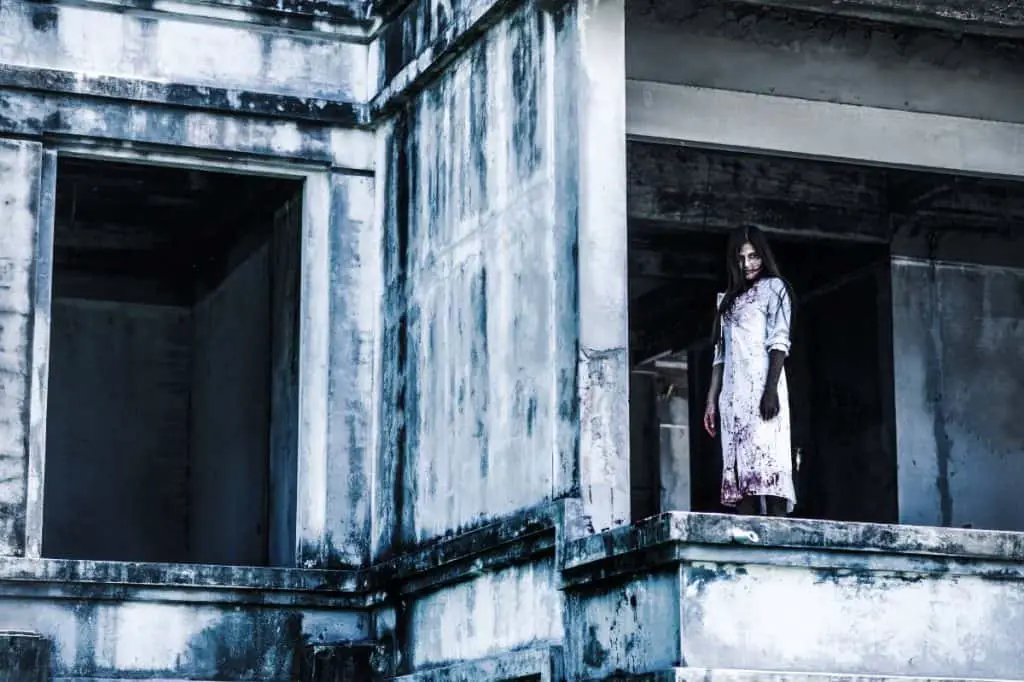
Navigating the Spectral Landscape: Respect and Awareness
As expats living in Thailand, encountering or hearing about these ghostly tales is almost inevitable. Approaching these stories with respect and cultural sensitivity is key. Dismissing these beliefs outright can be seen as disrespectful to Thai culture and traditions, especially when considering the role of monks in preserving these customs.
Here are a few ways to navigate this spectral landscape:
- Listen and Learn: When locals share stories or beliefs about spirits, listen with an open mind. Try to understand the cultural context rather than immediately dismissing them.
- Be Mindful of Local Customs: Understanding the beliefs surrounding spirits and the role of monks in Thai society can enhance your experience as an expat. Observe and respect local customs related to spirits, such as acknowledging spirit houses or avoiding behavior that might be considered disrespectful to certain places.
- Seek Understanding, Not Proof: Don’t go out of your way to “ghost hunt” or try to disprove local beliefs. Instead, focus on understanding the cultural significance of these stories.
- Communicate Openly (and Respectfully): If you experience something unsettling, talk to trusted Thai friends or colleagues. They may offer insights based on their cultural understanding, which can be particularly interesting for those new to the city.
Ultimately, whether you believe in ghosts or not, acknowledging the importance of these beliefs within Thai culture will enrich your experience of living in the Land of Smiles.
About Us: Better Living Asia – Your Guide to Thriving Abroad
At Better Living Asia, our mission is to empower expats like you to navigate the exciting journey of building a life in Thailand and other parts of Asia. We understand that moving to a new country involves more than just packing your bags. It’s about understanding the culture, navigating practicalities, and connecting with a community that understands your experiences.
We are a team of passionate individuals, many of whom have lived and thrived abroad ourselves, sharing our love story with the diverse cultures we encounter. We curate insightful articles, practical guides, and valuable resources to help you seamlessly integrate into your new environment.
From navigating visa requirements and finding the perfect accommodation to understanding local customs and discovering hidden gems, we strive to provide you with the knowledge and support you need to not just survive, but truly thrive in Asia.
We believe that a fulfilling expat experience is built on a foundation of knowledge, connection, and cultural understanding. That’s why we go beyond the surface-level information to delve into the nuances of daily life, offering perspectives that you won’t find in typical tourist guides. We aim to be your trusted companion, providing relatable and practical advice every step of the way.
FAQs
What is the story of Mae Nak?
Who are the Nang in Thai ghost stories?
What are phi nang takian and their significance in Thai culture?
Can you explain the concept of กระหัง (krahang)?
What role do vengeful spirits play in Thai Buddhism?
Conclusion
Living in Thailand as an expat is an adventure filled with incredible sights, sounds, and tastes, including the creepy tales that often accompany the local folklore. While the prospect of encountering a ghost might seem daunting, understanding the cultural context behind these beliefs can add another layer of depth to your experience. By approaching these stories with curiosity and respect, you gain a richer understanding of Thai culture and the intricate tapestry of life in the Land of Smiles.
So, while you’re savoring that delicious Pad Thai and basking in the warmth of the Thai sun, remember that there’s a whole other world of whispers and beliefs that make this country truly unique. Embrace it all, the vibrant and the veiled, and your journey as an expat in Thailand will be all the more enriching.
